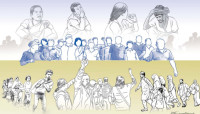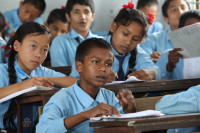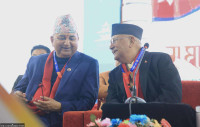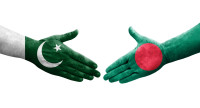Opinion
Lift the burden
The state must lead the efforts to rehabilitate and integrate the physically challenged in society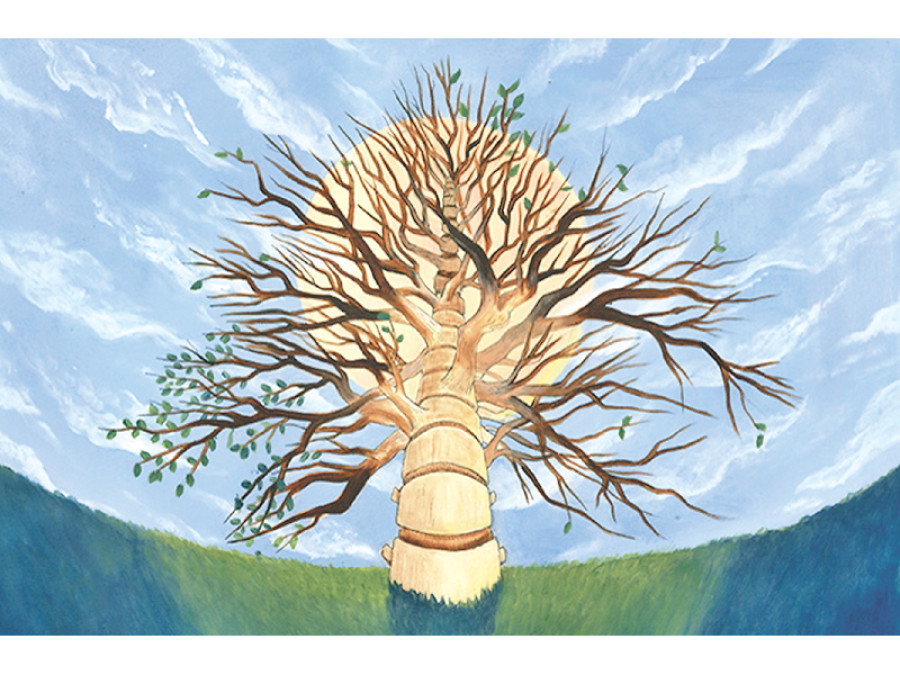
Sandhya Regmi
Imagine being robbed of the ability to move your hands and of having to depend on a wheelchair or crutches, and in the worst-case scenario, of being bed-ridden for the rest of your life. Then think of what it would take for you to lead a dignified, fulfilling and inspirational life. Every year, thousands of people with a spinal cord injury are compelled to face this in reality due to manmade accidents or natural disasters. A spinal cord injury blocks communication between the brain and the rest of the body, partially or completely paralysing the body’s whole host of muscular and nerve functions. The National Federation of Disabled, Nepal has thus categorised spinal injury as Disability Class A.
Spinal cord injury
People with a spinal cord injury need much more than a wheelchair. They require physiotherapy and medical stabilisation for rehabilitation, psychological counselling for motivation, and vocational training to get a job and restructure their lives. They also need wheelchair-friendly public facilities and a society that treats the differently abled not with pity but embraces them with love and respect. The challenges they face are enormous. Gayatri Dahal, the president of the Nepal Spinal Cord Injury Sports Association (NSCISA) and a social worker who has been wheelchair-bound for the past 30 years, says, “We, the spinal injured, are like small babies because our daily lives cannot run without a volunteer by our side, our legs are impaired, and our bladder and bowel movements are not under our control. And it is due to this reason that we are considered to be a burden by our own family members, and it is not unnatural to have suicidal thoughts as a last resort to all our problems. The spinal-injured have a high risk of dying from depression, infection and bed sores.”
So, where does Nepal stand in addressing the basic needs of those who suffer from a spinal cord injury? To begin with, we do have the Spinal Injury Rehabilitation Centre (SIRC) in Sanga, Banepa. It is funded by Swiss NGOs and was inaugurated by Sir Edmund Hillary in April 2002. While the importance of physical rehabilitation is obvious, the role of counselling experts is vital in instilling hope in the patients. A fellow spinal-injured
is best positioned to motivate others. Thomas Whittaker, who is fitted with artificial legs, climbed Everest in 1998, and so did Erik Weihemmayer, who is blind, in 2001.
Disability sports
In Nepal, a similar passion for life and sports drove a group of nine wheel-chaired counsellors to establish the NSCISA in 2009. It has been holding sports events in collaboration with the Danish Sports Organisation for the Disabled. The NSCISA is the first organisation of its kind to offer wheelchair basketball, para swimming and wheelchair cricket in Nepal. In 2014, they participated in an international wheelchair basketball tournament in Bangladesh. This year, it hosted the first ever-international wheelchair cricket series between Nepal and Pakistan in Kathmandu.
If we are to know more about the spinal-injured, nothing compares with meeting and associating with them in person. Three years ago, when I first visited the SIRC in Sanga, I found myself in a world that I had never known before. Despite being victims of unfortunate accidents, struggles and sufferings, the spinal-injured had a divine gift to offer—their heart-winning smiles. I salute the indomitable spirit of these extraordinary people.
A role to play
Still, we, as a country have a long way to go in developing disabled-friendly infrastructure: public toilets, hospitals, educational institutions, office buildings, recreational and entertainment facilities. The inauguration of the Khagendra Disabled-Accessible Road in Jorpati on September 8, however, shows that we can do so if we put our heart in it.
And the differently abled can not only stand on their own, but are also capable of leading society if given the right opportunities. Stephen Hawking, one of the greatest scientists and physicists of the 21st century, is a living legend despite being physically challenged and confined to a wheelchair. Jhamak Ghimire, who was born with cerebral palsy, has inspired the world through her literary works. Efforts at the individual and organisational levels have been, and will remain, crucial in rehabilitating and integrating the physically challenged in society. But the state must lead the effort by systematically studying the issue, formulating related policies, promulgating acts and developing specialised institutes and public facilities for the differently abled.
Regmi is advisor to the Nepal Spinal Cord Injury Sports Association and the Spinal Injury Network




 7.12°C Kathmandu
7.12°C Kathmandu

